To accompany your Come Follow Me study for May 27 to June 2
You’ll enjoy watching the following videos in connection with this week’s study:
You will also enjoy reading the following related material from the Book of Mormon Institute Student Manual:
If you would like a Kahoot game related to this material which you could use for personal study or use with your family or your class, click here: https://create.kahoot.it/share/mosiah-25-28/0355210c-cf37-4e62-96a9-ab42fac29a14 . To use it with a group, after clicking on this link, you will need to log into Kahoot, creating a free account if you have not done so previously, then click on the blue “Start” button. Some of the Kahoot questions may presuppose that the player has read through the suggested answers to the following Points to Ponder and at least has browsed the Institute student manual as well.
Points to Ponder in Mosiah 25-28
1. At this point in the Book of Mormon, what are the relative numbers of the descendants of Nephi, the people of Zarahemla, and the Lamanites? What importance does this information have? (Mos. 25:1‑3.)
2. What encouraging lesson can we learn from Mosiah 25:12?
3. How do you account for the fact that so many of the children of those converted by King Benjamin didn’t follow the lead of their parents? (26:1)
4. Why did Alma and Mosiah engage in an apparent case of “passing the buck” with regard to how to deal with transgressors? (26:9‑14) How did Alma finally decide what action to take?
5. How could the Lord promise Alma (26:20) that he would have eternal life when Alma still had several years of mortality in which he could sin?
6. To whom were the transgressors in Alma’s day required to confess in order to obtain forgiveness? To whom must we confess? (26:29) What would you say to Catholic friend who said, “I am really dissatisfied with my church because you have to confess your sins to a priest, who is probably no better than I am. I think confession should be just between you and the Lord. If that’s what your church teaches, I might be interested in learning more about it”?
7. Why does the Church excommunicate some people? Is it to help maintain the purity of the Church, to somehow help the sinner, or to satisfy a divine law of justice?
8. What new insight comes from comparing Mosiah 26:24‑27 with Matthew 7:21‑23?
9. What interesting insight does 26:31 provide into the conditions upon which we are to forgive our neighbors? Does this suggest that forgiveness is less mandatory if an antagonist doesn’t even pretend to have repented?
10. In your opinion, which of the following factors account(s) for why Alma the Younger was visited by an angel, when most wayward young people are not? (If you believe more than one of these factors was involved, indicate your estimate of the percentage weight of each.)
a. The angel knew Alma’s potential.
b. Alma was doing extensive damage to the church and needed to be stopped.
c. Alma’s father prayed so earnestly that it was appropriate to answer his prayer.
d. Alma had been foreordained in the pre‑mortal life to be chief high priest and had to be straightened out.
e. Alma was really a good kid in his heart and was inactive largely because he had seen no compelling evidence that the gospel was true.
f. Other (please explain)
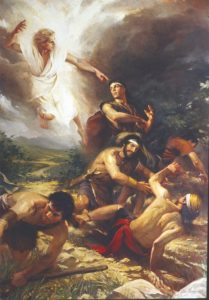
11. How was it possible for Alma to repent of his sins and be born of the Spirit while he was immobilized and to all outward appearances unconscious, if restitution is part of repentance? (27:24)
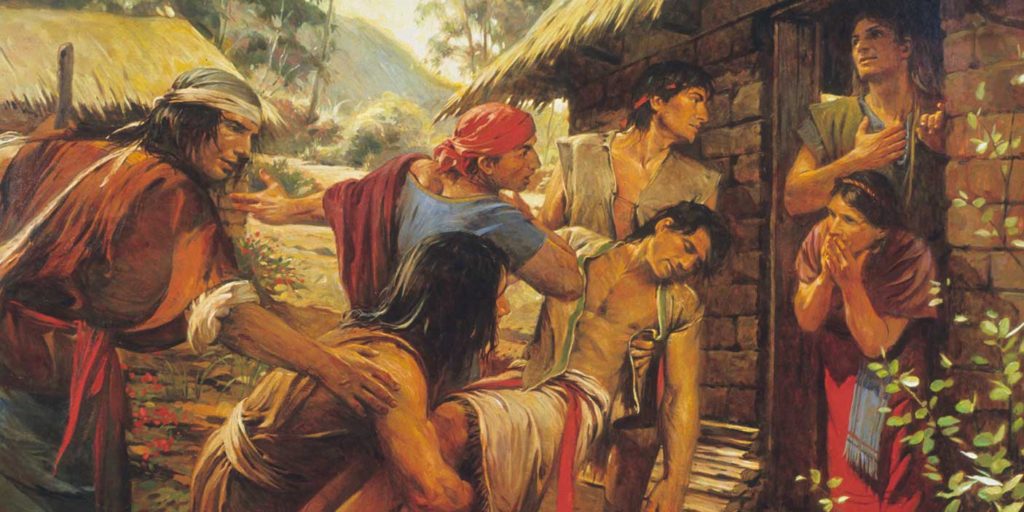
12. How could Alma have been racked with “eternal” torment in only two days’ time? (27:29) Why was the explanation of “eternal damnation” in D&C 19 necessary in view of what we could already have learned about the term in the Book of Mormon?
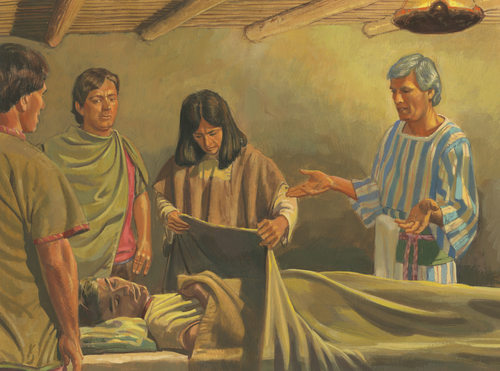
13. How many similarities can you find between how the mission call came to the sons of Mosiah and how mission calls come today? What are the principal differences?
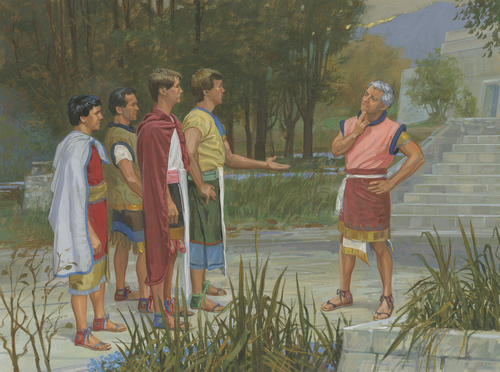
14. We learn in Mosiah 25:6 that the account of Alma’s group covered the time they left Zarahemla until they “returned again.” Since Alma and his followers were presumably born in the land of Nephi and had never been to Zarahemla, how is this discrepancy reconciled?
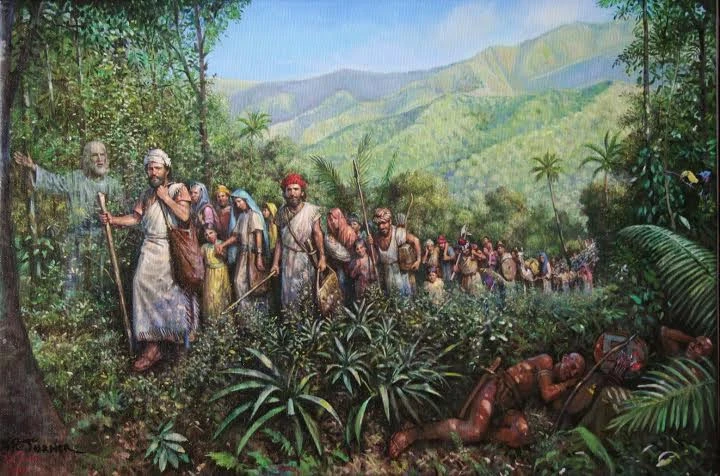
Possible Answers to Points to Ponder in Mosiah 25-28
1. At this point in the Book of Mormon, what are the relative numbers of the descendants of Nephi, the people of Zarahemla, and the Lamanites? What importance does this information have? (Mos. 25:1‑3.)
There are more people of Zarahemla than there are descendants of Nephi, and more than twice as many Lamanites as the combined total of the two. The significance of this is to remind us that whenever the Nephites prevailed over the Lamanites in battle it was due to divine intervention, not numerical superiority.
2. What encouraging lesson can we learn from Mosiah 25:12?
Children are not necessarily doomed by being raised in a negative environment by unrighteous parents but have the power to rise above it, if they choose, as did the children of Amulon and his brethren.
3. How do you account for the fact that so many of the children of those converted by King Benjamin didn’t follow the lead of their parents? (26:1)
Good question. Perhaps parents took it for granted that their children would learn the gospel by osmosis without being taught it directly. Perhaps the prosperity which followed their parents’ conversion created an environment of luxury and ease which led the younger generation to feel they didn’t lack anything, and consequently didn’t need religion. In any case, it is a reminder to us that at any given time, the Church is only one generation away from potential apostasy and that eternal vigilance is in order.
4. Why did Alma and Mosiah engage in an apparent case of “passing the buck” with regard to how to deal with transgressors? (26:9‑14) How did Alma finally decide what action to take?
Mosiah was still the prophet and spiritual leader of the Nephite nation, although he had delegated to Alma the day-to-day responsibility for running the church. Alma had had no prior experience with such mass apostasy as he was now facing and felt it best to defer to his superior, Mosiah, to make the decision as to what to do about it. Mosiah declined, not because he had no authority to direct Alma in the matter but presumably because he wanted Alma to approach the Lord directly and learn to get his own revelation. Too often leaders may deprive associates of the opportunity to grow by micromanaging stewardships that were supposedly delegated. Forced to go to his knees for the answer, Alma received from the Lord the direction he was seeking.
5. How could the Lord promise Alma (26:20) that he would have eternal life when Alma still had several years of mortality in which he could sin?
While Alma still had the freedom to sin in his remaining years, he had no disposition to do so. The Lord knew Alma’s heart, and in His foreknowledge knew that Alma in fact would not commit intentional sin for the remainder of his life, so He could properly reveal to Alma that his calling and election had been made sure.
6. To whom were the transgressors in Alma’s day required to confess in order to obtain forgiveness? To whom must we confess? (26:29) What would you say to Catholic friend who said, “I am really dissatisfied with my church because you have to confess your sins to a priest, who is probably no better than I am. I think confession should be just between you and the Lord. If that’s what your church teaches, I might be interested in learning more about it“?
Sins are properly confessed to those against whom one has sinned. All sins are an offense to the Lord, so must be confessed to Him. Some sins are also against the Lord’s church, either because they involve direct opposition to the organization or because they are so egregious and public that they put the church in a bad light in the eyes of others. Such sins require confession to the church’s established presiding authority as well as to the Lord. In addition, some sins, if not repented of, could result in one’s losing his membership or fellowship in the church, and for that reason as well must be confessed to the appropriate church authority. Lesser sins need be confessed only to the Lord and to whatever other person or persons may have been injured.
7. Why does the Church excommunicate some people? Is it to help maintain the purity of the Church, to somehow help the sinner, or to satisfy a divine law of justice?
To start with, the current term is “withdrawal of membership,” not “excommunication,” which the leaders of the Church felt had an unnecessarily harsh connotation. The greatest reason for withdrawal of membership or imposition of formal membership restrictions (formerly called disfellowshipment) is to help the sinner repent. But withdrawal of membership is sometimes also necessary to protect the innocent and/or to maintain the purity of the Church. Though on occasions divine justice may mandate withdrawal of membership from the most hardened and unrepentant sinners, the desired objective is the rehabilitation of the transgressor, not his punishment per se.
8. What new insight comes from comparing Mosiah 26:24‑27 with Matthew 7:21‑23?
Matthew 7 by itself seems to say simply that the Lord will profess not to have known those who were unfaithful, but the Mosiah passage clarifies that the Lord will so decree only in cases where the individual himself did not know the Lord. Going back to Mosiah 5:13, we are reminded that knowing the Lord implies serving him and focusing on Him with our hearts. In short, if we are not close to the Lord in this life, there is little reason to expect that we will suddenly have either the inclination or privilege of being close to Him in the next.
9. What interesting insight does 26:31 provide into the conditions upon which we are to forgive our neighbors? Does this suggest that forgiveness is less mandatory if an antagonist doesn’t even pretend to have repented?
This passage emphasizes that it is not up to us to assess the sincerity of a former antagonist’s apology. If he says he is sorry, we are to forgive him, whether or not he means it. However, lest we be tempted to look for loopholes and want to withhold forgiveness in those cases where the offender doesn’t even say he is repentant, the Lord in D&C 64:9-11 indicates that even that is not a valid criterion. “I, the Lord, will forgive whom I will forgive,” He said, “but of you it is required to forgive all men.”
10. In your opinion, which of the following factors account(s) for why Alma the Younger was visited by an angel, when most wayward young people are not? (If you believe more than one of these factors was involved, indicate your estimate of the percentage weight of each.)
a. The angel knew Alma’s potential.
b. Alma was doing extensive damage to the church and needed to be stopped.
c. Alma’s father prayed so earnestly that it was appropriate to answer his prayer.
d. Alma had been foreordained in the pre‑mortal life to be chief high priest and had to be straightened out.
e. Alma was really a good kid in his heart and was inactive largely because he had seen no compelling evidence that the gospel was true.
f. Other (please explain)
Your choice. We have no divinely revealed answer. Perhaps there is an element of truth in all of the answers. We do know that the reason the angel gave was “C.” But if other answers such as “D” hadn’t also applied, it is unlikely that the angel would have appeared to Alma just to scare him, if no good was to come of it.
11. How was it possible for Alma to repent of his sins and be born of the Spirit while he was immobilized and was to all outward appearances unconscious, if restitution is part of repentance? (27:24)
Restitution is not a prerequisite to repentance and forgiveness, though a desire to make such restitution is. Alma and his brethren spent the rest of their lives zealously trying to repair the damage they had done, but it was not necessary that they complete such repairs before they could have the Spirit to be with them.
12. How could Alma have been racked with “eternal” torment in only two days’ time? (27:29) Why was the explanation of “eternal damnation” in D&C 19 necessary in view of what we could already have learned about the term in the Book of Mormon?
It should be clear from Mosiah 27:29 that if one can be racked with “eternal torment” in just two days’ time, the term must refer to the quality of the torment or the eternal availability of such torment rather than the amount of time any one individual is subjected to it. Still, as most readers of scripture don’t capture all shades of meaning of every passage on the first reading (or even after several readings), the Lord appropriately clarified the point in D&C 19.
13. How many similarities can you find between how the mission call came to the sons of Mosiah and how mission calls come today? What are the principal differences?
Then and now missionary candidates apply to serve. The call comes from the head of the Church. But with the size of today’s church and the availability of modern technology, the process has appropriately been streamlined, with applications being submitted online and an entire Missionary Department dedicated to helping administer the details of mission calls.
14. We learn in Mosiah 25:6 that the account of Alma’s group covered the time they left Zarahemla until they “returned again.” Since Alma and his followers were presumably born in the land of Nephi and had never been to Zarahemla, how is this discrepancy reconciled?
See my article from the August 1992 Ensign at What does it mean that Alma’s people returned again to Zarahemla? (churchofjesuschrist.org)
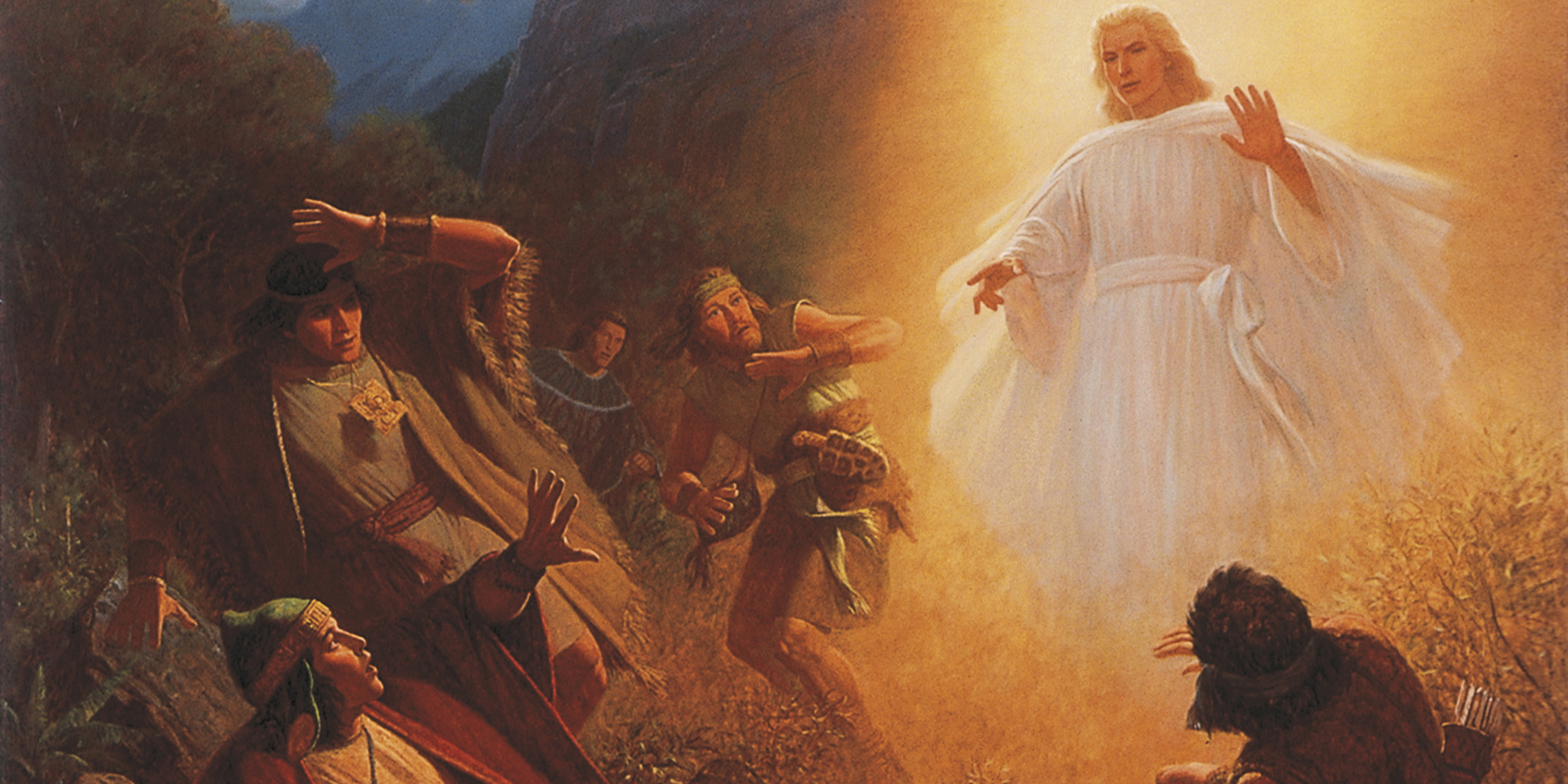
Good to be taught by you again! I look forward to these supplements to my weekly studies – keep them coming!